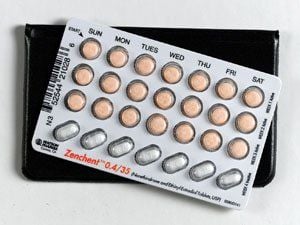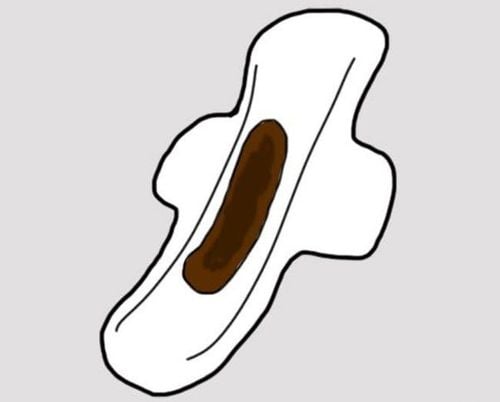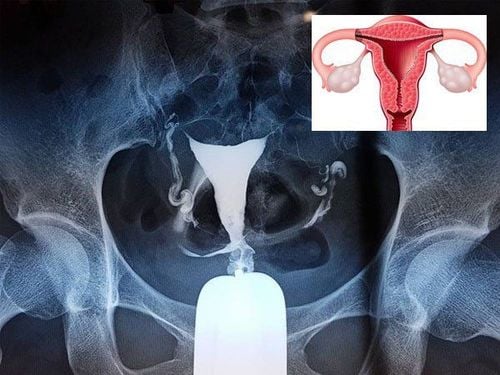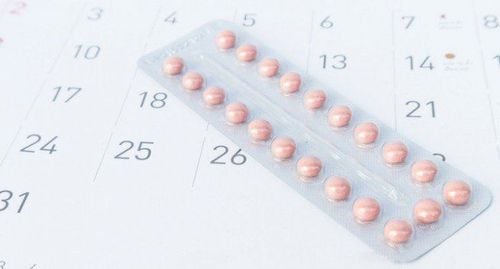This is an automatically translated article.
Hormonal drugs can be used to regulate menstruation for women with frequent menorrhagia and menstrual disorders. However, users need to see a doctor for advice on suitable options to avoid unwanted side effects.
1. What is menstrual disorder?
Irregular menstruation is the difference between the first and last days of the menstrual cycle less than 24 days or more than 38 days. A difference of more than 20 days between menstrual periods is also an abnormality. However, irregular periods are normal during the first few years of menstruation, perimenopause, and menopause.
Rối loạn kinh nguyệt là tình trạng xảy ra phổ biến ở nữ giới
2. Hormonal drugs have the effect of regulating menstruation
Hormonal medications commonly used to regulate menstruation include:Birth control pills Contraceptives patches Injectable contraceptives Vaginal rings Hormonal intrauterine devices (IUDs) Hormonal medications that require a prescription before use. Depending on the cause of the hormonal imbalance, your doctor will recommend the most appropriate treatment. Anti-androgen drugs are hormonal drugs that can be used in women with polycystic ovary syndrome to lower testosterone levels in the body. Sometimes, the diabetes drug metformin is also used to lower androgen levels in the body and restart ovulation. If menstrual irregularities are caused by thyroid dysfunction, such as hypothyroidism, thyroid hormone medications can help to correct hormone balance.
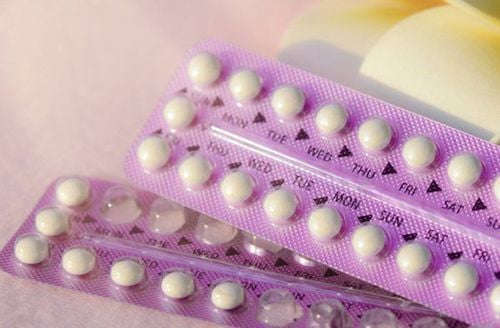
Thuốc tránh thai là một thuốc nội tiết thường được sử dụng để điều hòa kinh nguyệt
3. Note when using hormonal drugs to regulate menstruation
3.1. Progesterone Tablets
Progesterone tablets are commonly used in the treatment of menorrhagia. Progesterone has the effect of inhibiting the growth of the uterine lining before menstruation, reducing the amount of menstrual blood. Accordingly, progesterone tablets are taken from the 7th to the 21st day of the menstrual cycle.3.2. Birth control pills
Progestin birth control pills can be used to control heavy menstrual bleeding. Low-dose progestin pills are taken every day, without a break. This often causes menstrual bleeding to become irregular and can sometimes stop periods.Combined oral contraceptives are taken for 21 days of each menstrual cycle. Menstruation occurs during the next 7 days off. Low-dose combined oral contraceptives can be taken continuously. After continuous use, women often stop menstruating completely or only menstruate in small amounts.
Side effects after taking oral contraceptives include:
Edema Headache Chest tightness Blood clots

Thuốc tránh thai có thể gây nên tác dụng phụ là căng ngực
3.3. Intrauterine device
The hormonal IUD (intrauterine device) is implanted in the uterus for about 5 years and helps prevent pregnancy by releasing a continuous amount of a progestin hormone called levonorgestrel.
The most common side effects of hormonal IUDs are:
Pimples Vaginal bleeding between periods) Mood changes Breast tightness Benign ovarian cysts Hormonal drugs are used to regulate menstruation In order to avoid unwanted side effects, patients need to follow the doctor's instructions exactly. In case the use of the drug is not effective, the patient should stop the drug and go to the medical facility for examination and treatment.
Vinmec International General Hospital is the address for examination, treatment and prevention of diseases. When performing the examination process at Vinmec, customers will be welcomed and used modern facilities and equipment along with perfect medical services under the guidance and advice of experts. Good doctors, well-trained both at home and abroad.
Please dial HOTLINE for more information or register for an appointment HERE. Download MyVinmec app to make appointments faster and to manage your bookings easily.
References: healthdirect.gov.au, ncbi.nlm.nih.gov, healthline.com





